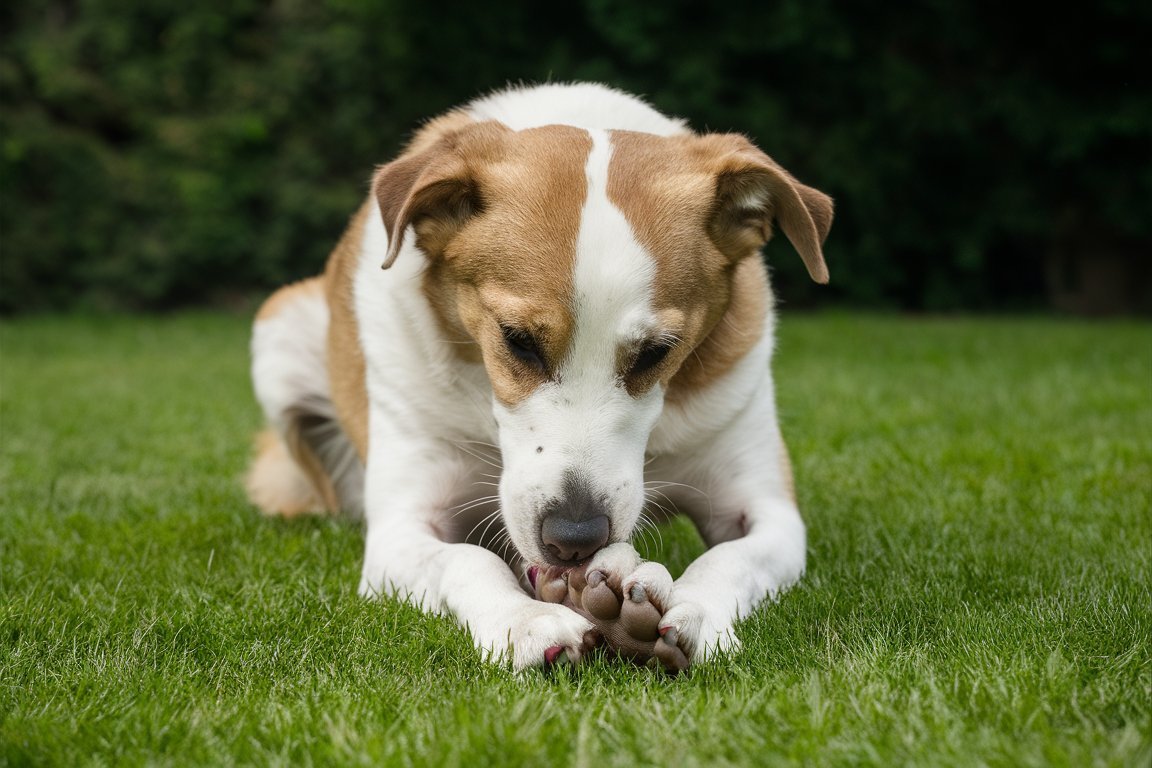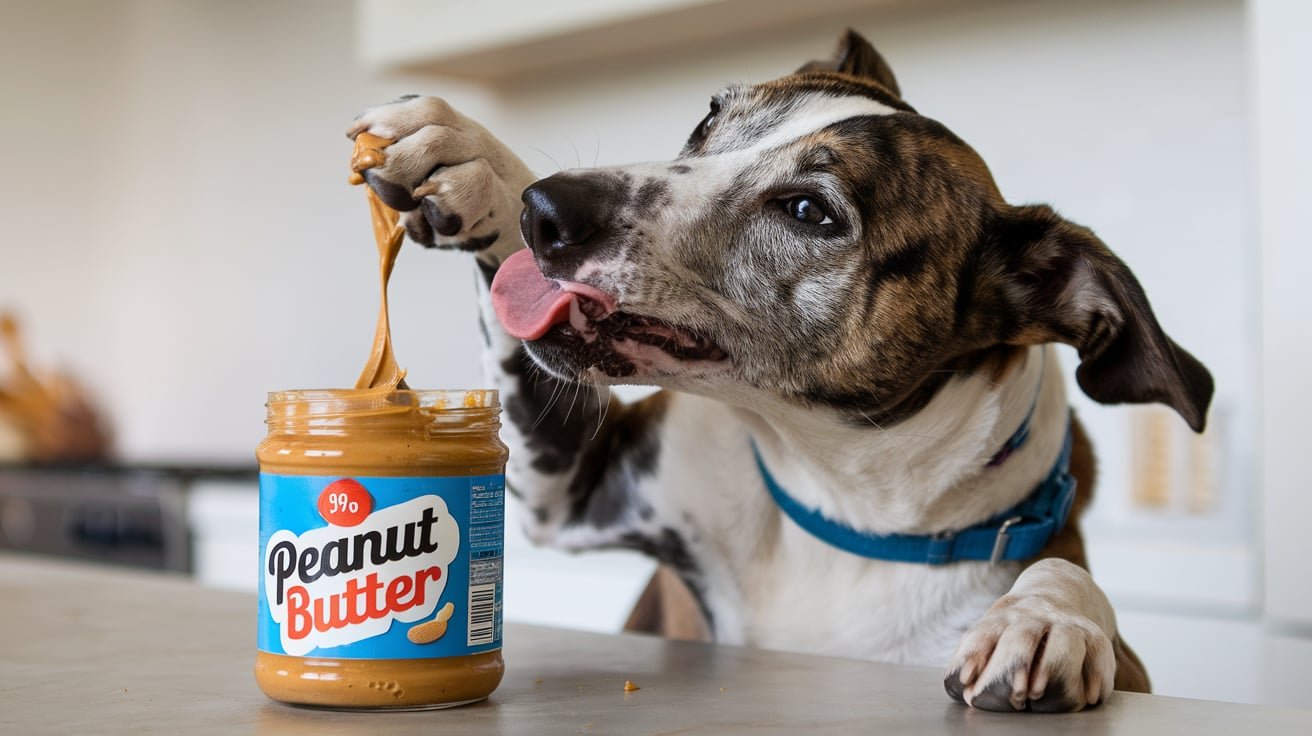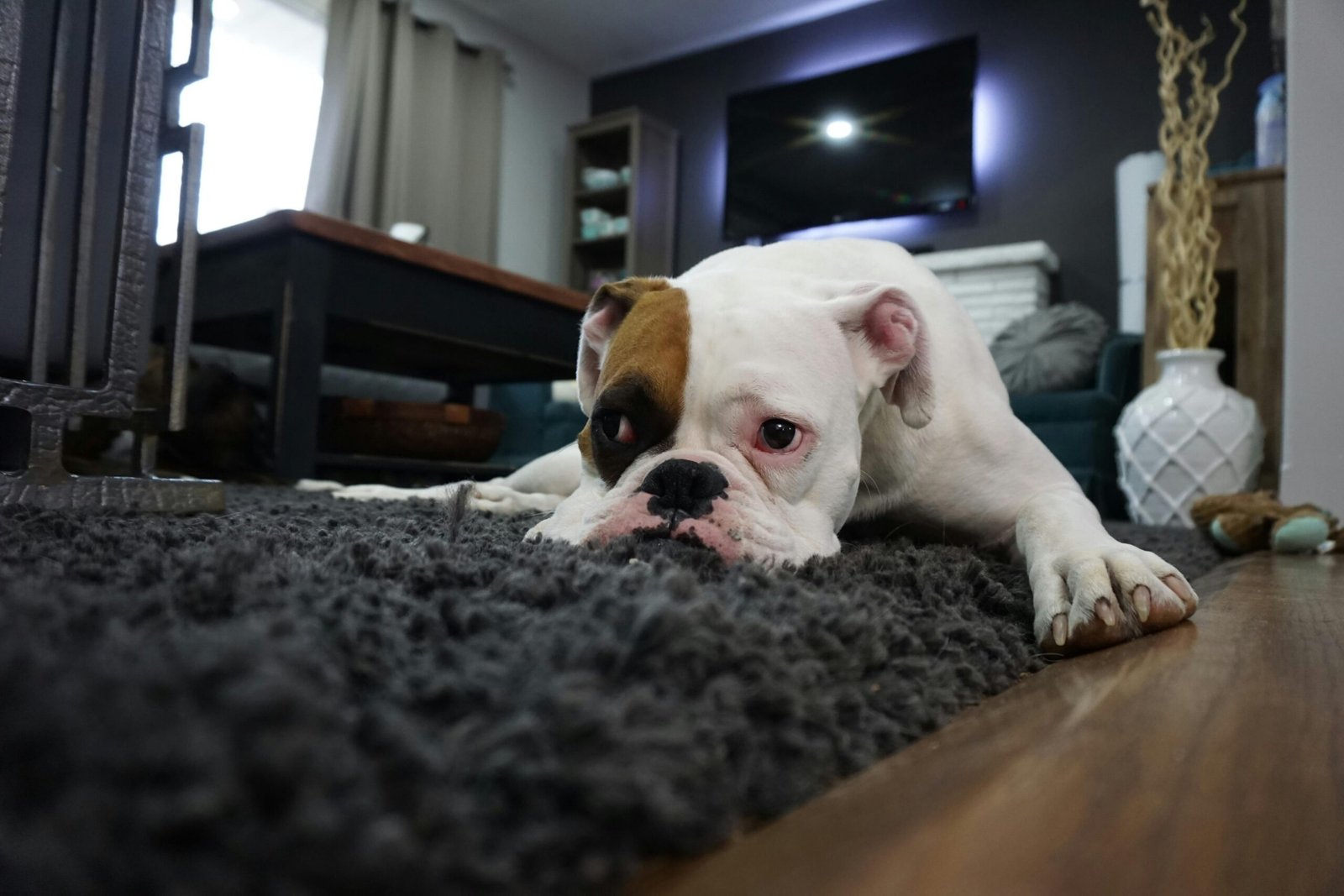Why Is My Dog Chewing Their Paws?
Has your dog been gnawing at their paws lately? While occasional paw licking can be normal, constant chewing is something to be concerned about. If you’ve noticed your dog obsessively nibbling their paws, there could be underlying reasons. Understanding why dogs chew their paws can help you take the right steps to ensure your furry friend’s comfort and well-being.
Common Reasons Dogs Chew Their Paws
Dogs might chew their paws for various reasons. Some might be as simple as a bit of dirt or an itch, while others could be more serious. Here are some of the most common causes:
1. Allergies
Just like humans, dogs can suffer from allergies too. These could be due to food, environmental factors, or even the products you’re using at home. Allergies often cause itching, which might lead your dog to chew their paws to get some relief.
- Environmental Allergies: These include pollen, dust mites, or mold. If your dog chews their paws more during certain seasons, this might be the culprit.
- Food Allergies: Some dogs are sensitive to specific ingredients in their food, such as grains or certain proteins. If the chewing persists, consider evaluating their diet.
- Contact Allergies: Sometimes, the chemicals in cleaning products, carpets, or even the grass in your yard can cause an allergic reaction, leading your dog to chew their paws.
2. Parasites
Fleas, ticks, and mites are common parasites that can cause intense itching. If your dog is constantly nibbling at their paws, it could be a sign of parasitic infestation. Regular checks for fleas or ticks, especially after outdoor activities, can help in early detection.
3. Injuries or Foreign Objects
Dogs are curious by nature. They love to explore, often leading them to step on sharp objects or irritants. A thorn, splinter, or even a small cut can make your dog chew their paws in discomfort. Always inspect their paws if you notice persistent chewing, as it could be a sign of an injury.
4. Anxiety or Stress
Dogs can experience anxiety or stress just like us. Sometimes, chewing their paws is a way to self-soothe. This behavior might be triggered by changes in their environment, such as moving to a new home, the introduction of a new pet, or even being left alone for extended periods. If you suspect anxiety is the cause, addressing the root of the stress can reduce the chewing behavior.
5. Dry Skin
Dry or cracked paw pads can be extremely uncomfortable for dogs. Weather changes, particularly during winter, can dry out their skin, leading to dry skin and irritation. Dogs might chew their paws to alleviate the discomfort caused by dryness.
When Should You Be Concerned?
While occasional paw chewing might not be a big deal, persistent or aggressive chewing is something to watch out for. If your dog’s chewing is causing redness, swelling, bleeding, or any noticeable pain, it’s essential to consult with a vet. Ignoring these signs might lead to infections or more severe health issues.
Step-by-Step Guide: How to Stop Your Dog from Chewing Their Paws
If your dog is constantly chewing their paws, it’s crucial to address the behavior quickly. Here’s a step-by-step guide to help you manage and reduce this behavior:
1. Identify the Cause
Start by figuring out why your dog is chewing their paws. Is it due to an allergy, injury, or something else? Pay close attention to their environment and any recent changes.
2. Check for Injuries or Foreign Objects
Inspect your dog’s paws closely for any cuts, splinters, or foreign objects that might be causing discomfort. Use a gentle touch, and if you find anything suspicious, carefully remove it and clean the area.
3. Address Possible Allergies
If you suspect allergies, try to identify the allergen. For food allergies, consider switching to a hypoallergenic diet. If environmental factors are to blame, reduce your dog’s exposure to them, such as by wiping their paws after walks during high-pollen seasons.
4. Keep Your Dog’s Paws Clean and Moisturized
Regularly clean your dog’s paws to remove any dirt or irritants. Additionally, using a dog-safe moisturizer can help keep their paw pads soft and prevent cracking.
5. Treat Parasites Promptly
If you notice fleas, ticks, or other parasites, treat your dog immediately. There are numerous flea and tick prevention products available that can help keep these pests at bay.
6. Provide Mental and Physical Stimulation
If your dog’s chewing is due to anxiety or boredom, ensure they have enough mental and physical stimulation. Interactive toys, puzzles, and regular walks can help keep your dog engaged and reduce stress-related behaviors.
7. Use Protective Gear if Necessary
If your dog’s chewing has caused sores or if you need to prevent further damage, consider using protective booties or an Elizabethan collar (e-collar) until the behavior is under control.
Anecdote: A Paw-sitive Turnaround
Let me share a story about Bella, a three-year-old Labrador who couldn’t stop chewing her paws. Her owner, Sarah, was at her wit’s end. She tried everything from changing Bella’s diet to giving her toys, but nothing seemed to work. One day, Sarah noticed that Bella’s paw chewing worsened after playing in the yard. It turned out Bella was allergic to the grass in their backyard! After switching to a different grass type and using hypoallergenic wipes on Bella’s paws after every outdoor adventure, the chewing stopped almost overnight. Bella’s story is a great example of how understanding the cause of your dog’s behavior can lead to a quick and effective solution.
When to Seek Professional Help
If you’ve tried the above steps and your dog is still chewing their paws, it’s time to consult with a vet. They can help rule out serious health issues and might suggest specific treatments or medications to address the problem.
Final Thoughts
Paw chewing in dogs can be distressing for both you and your furry friend. However, by understanding the causes and taking proactive steps, you can help your dog feel more comfortable and reduce or eliminate the behavior. Remember, a happy dog makes for a happy owner!
If you’re looking for high-quality products to keep your dog’s paws healthy, consider browsing our recommended products for paw care. Investing in the right items can make all the difference in your dog’s comfort and well-being.
This article was written to help dog owners understand and address the common issue of paw chewing. If you have further questions or need personalized advice, don’t hesitate to reach out to a professional.




I appreciate how you broke down this complex topic into manageable pieces. Your clear explanations and real-life examples made it so much easier to understand.